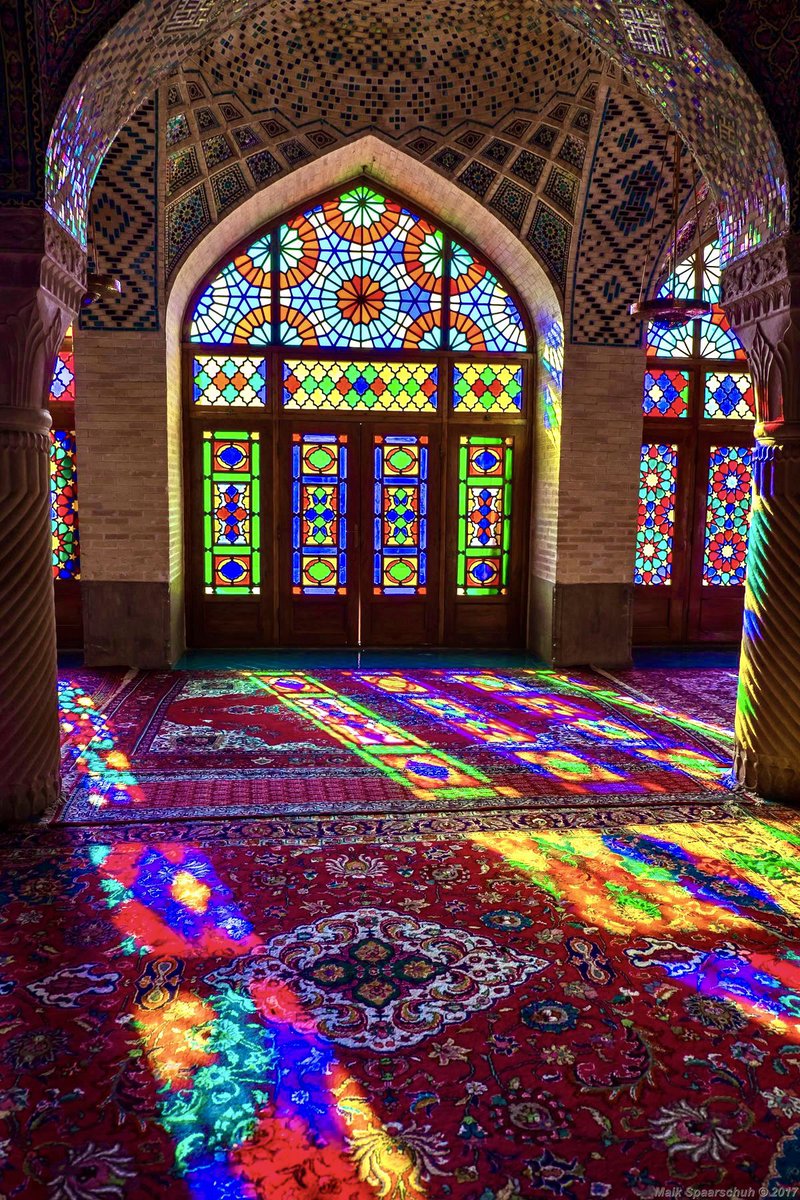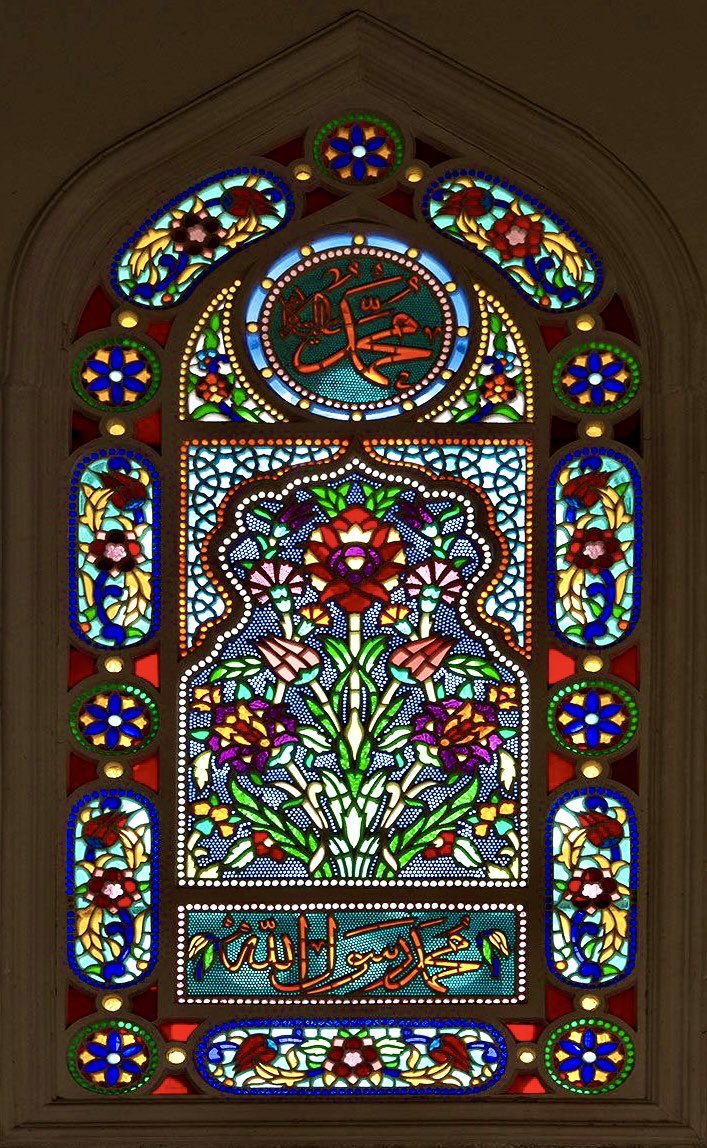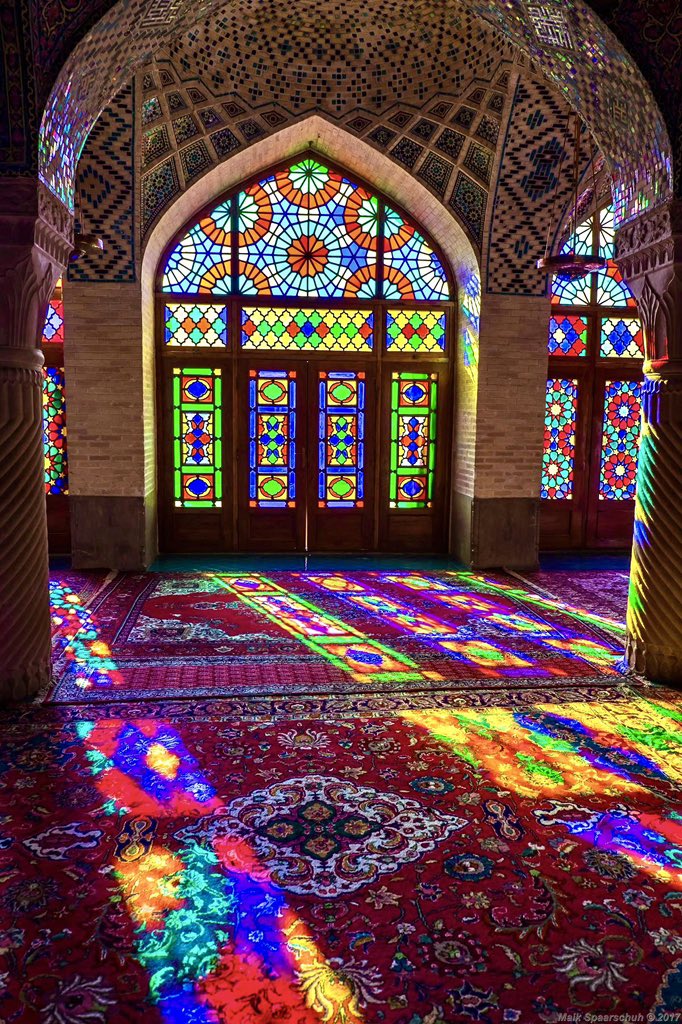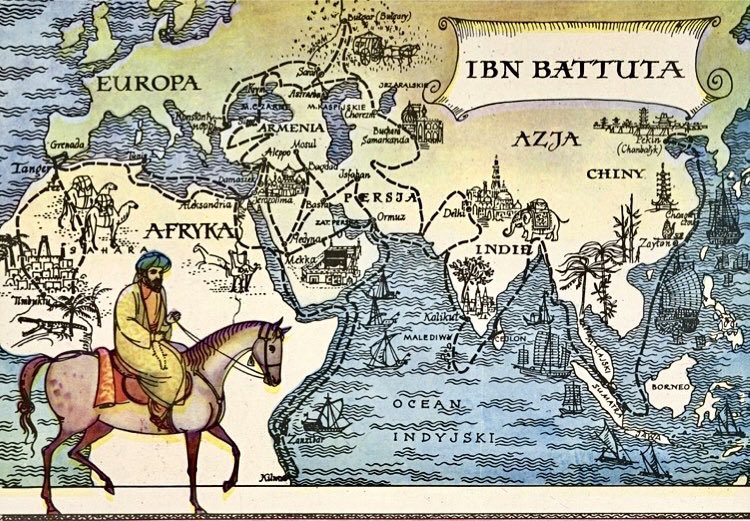Environmental protection & conservation is important in Islam. Muslims believe humans are stewards of the Earth, & it is a religious obligation to care for the environment & the planet in a proactive manner
To celebrate Earth Day, a thread on Islam & environmental action…
To celebrate Earth Day, a thread on Islam & environmental action…

1/Muslims believe Prophet Muhammad (pbuh), stated,
“The world is green & beautiful, & Allah (God) has appointed you his stewards over it.”
It is the religious obligation of anyone who follows Islam to care for the Earth and its resources.
“The world is green & beautiful, & Allah (God) has appointed you his stewards over it.”
It is the religious obligation of anyone who follows Islam to care for the Earth and its resources.

2/The Quran defined mankind as a Khālifah, or a representative or successor on the earth, rather than having dominion over or possession of it. The idea of khalifah (stewardship) is arguably the most important concept in Islamic environmentalism. 

3/ The role of human beings in general & Muslims as caretakers of the environment is stressed in seven Quranic verses that tie stewardship (khalifa) to the earth (fil ardh). There is a responsibility charged to human beings to carry out this trust (amana).
#EarthDay
#EarthDay

4/ The Quran & hadith contain numerous textual evidences in support of environmental stewardship. The Quran says,
“It is He who has appointed you vicegerent on the earth…” (Quran 6:165).
Muslims have a responsibility to incline towards moderation & conservation
#EarthDay
“It is He who has appointed you vicegerent on the earth…” (Quran 6:165).
Muslims have a responsibility to incline towards moderation & conservation
#EarthDay

5/Muslims believe the Earth was created by Allah
‘It is He who created the heavens & earth in 6 days & then established Himself above the Throne. He knows what penetrates the earth & what emerges from it & what descends from the heaven & ascends therein’
(Quran 57:4)
#EarthDay
‘It is He who created the heavens & earth in 6 days & then established Himself above the Throne. He knows what penetrates the earth & what emerges from it & what descends from the heaven & ascends therein’
(Quran 57:4)
#EarthDay

6/ This verse in the Quran in Surah Hadid not only demonstrates the Power and Majesty of Allah (SWT) but also illustrates the importance of taking care of the Earth
#EarthDay
#EarthDay

7/Although the earth is created to serve the purposes of humans, it should never be degraded in any way – contaminated or immoderately exploited. Its resources are available to humanity, but are to be used in ways that are sustainable & without harmful impact to the environment… 

7.1/ The Quran tells us,
“The servants of the Lord of Mercy are those who walk gently upon the earth…” (Quran 25:63).
#EarthDay
“The servants of the Lord of Mercy are those who walk gently upon the earth…” (Quran 25:63).
#EarthDay

8/ Prophet Muhammad (pbuh) respected & took responsibility towards the environment. He encouraged water conservation, instructing to not be wasteful even if they were near a flowing river. He also said “One of the branches of faith is to remove litter from the street”
#EarthDay
#EarthDay

9/ Muslims believe planting trees is a renewable source of reward
Prophet Muhammad (pbuh) said:
"If a Muslim plants a tree or sows seeds, and then a bird, or a person or an animal eats from it, it is regarded as a charitable gift (sadaqah) for him." - Imam Bukhari.
#EarthDay
Prophet Muhammad (pbuh) said:
"If a Muslim plants a tree or sows seeds, and then a bird, or a person or an animal eats from it, it is regarded as a charitable gift (sadaqah) for him." - Imam Bukhari.
#EarthDay

10/ Prophet Muhammed (pbuh) was a pioneer when it came to land preservation & providing sanctuary for wildlife. He designated special areas where water, wildlife & forestry use would be restricted or left alone altogether. This is now recognised as nature reserve or
#EarthDay
#EarthDay

11/ On protecting wildlife, Prophet Muhammed (pbuh) instructed that hunting is for valid reasons - for food or the safety of humans, but never for sport or pastime. He said: “If anyone wrongfully kills a sparrow or anything greater God will question him about it”
#EarthDay
#EarthDay

12/ Keeping the Earth clean is important for Muslims. Prophet Muhammad (pbuh) said about street clean-ups:
"Removing harmful things from the road is an act of charity (sadaqah)." Narrated by Abu Dharr Al-Ghafari.
#EarthDay
"Removing harmful things from the road is an act of charity (sadaqah)." Narrated by Abu Dharr Al-Ghafari.
#EarthDay

13/ Since the beginning of time, waste has been an environmental issue but even before the existence of rubbish, there was waste. Muslims have had lessons on avoiding & reducing waste for over 1,400 years & have found this guidance in the Holy Quran
#EarthDay
#EarthDay

14/ One of our biggest environmental issues is how much we consume & the more we consume, the more waste we produce. The concept of waste (Israaf) comes up considerably in the Quran
“But waste not by excess: for Allah loveth not the wasters” (Quran 6:141)
#EarthDay
“But waste not by excess: for Allah loveth not the wasters” (Quran 6:141)
#EarthDay

15/ Muslims are told that unnecessary waste is not permitted in Islam which also includes food. The Quran says “It is He Who has brought into being gardens, the cultivated & the wild, & date-palms, & fields with produce of all kinds, & olives & pomegranates… 

15.1/ ‘similar (in kind) & variegated. Eat of their fruit in season, but give (the poor) their due on harvest day. And do not waste, for God does not love the wasteful.” [Qur’an 6:142]
#EarthDay
#EarthDay

16/ Upcycling & fixing before buying new items is important in Islam. When asked about how Prophet Muhammed (pbuh) lived in his house his wife A'ishah said that he used to repair his own shoes, sew his clothes without complaint or want for more (Al-Albani)
#EarthDay
#EarthDay

17/ “It is Allah who causes the seed grain and the date stone to split and sprout. He causes the living to issue from the dead. And He is the One to cause the dead to issue from the living. That is Allah: then how are you deluded away from the truth?” (Qur’an 6:96).
#EarthDay
#EarthDay

18/This Qur’anic verse reveals in this physical universe, nothing is ever lost. It all gets recycled. Allah provides for the new generation from the elements of the previous generations. Decomposition or composting, is the natural process of returning fiber to the soil
#EarthDay
#EarthDay

19/ Starting a compost pile is one of the best things a Muslim can do to help clean up the environment and to honor and participate in the natural cycle of life.
#EarthDay
#EarthDay

20/ Animals have a huge role in the ecological welfare system. The tenets of the Shariah law towards animals rights make it obligatory for any individual to take care of crippled animals, to rescue strays, protect wildlife and to guard a bird's nest of eggs.
#EarthDay
#EarthDay

21/ Muslims believe animals should be cared for:
The Companions of Prophet Muhammad (pbuh) said, "O Allah's Messenger! Is there a reward for us in serving the animals?" He replied: "There is a reward for serving any living being."
The Companions of Prophet Muhammad (pbuh) said, "O Allah's Messenger! Is there a reward for us in serving the animals?" He replied: "There is a reward for serving any living being."

22/ Our planet is suffering and needs us to restore the natural balance; as people from different faiths & backgrounds let's all come together and do our part to protect our common home, for the sake of people & planet, right now & for the generations to come.
#EarthDay
#EarthDay

• • •
Missing some Tweet in this thread? You can try to
force a refresh






















